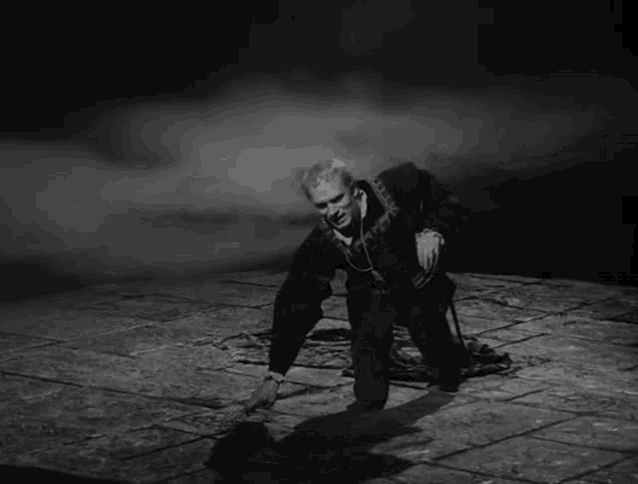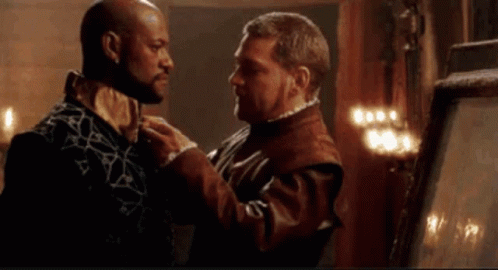What is your fatal flaw?
Describe the perfect literary villain.
Pick an actor.
Which of these scenarios sounds most enticing?
Pick a character.
Choose a line of dialogue.
Which of these phrases do you use most?
Which Shakespeare Play Should You Teach?
Teach Hamlet!
Ah, the sweet prince who can’t make a decision and chitchats with his father’s ghost. With all those narrative complexities in tow, teachers can use Hamlet to discuss the importance of deciphering reality from illusion, a feat that becomes vastly more complicated as students inch closer to young adulthood.
Ready for Shakespearean continuing education?
Unfortunately, Willy won’t shuffle out of the graveyard to teach our Shakespearean Literature course. But rest assured that this course will break down the Bard’s structures, character development, and literary devices so you can better examine his themes of love, mortality, family, jealousy, and more.
Vieweth Thy Course
Ready for Shakespearean continuing education?
Unfortunately, Willy won’t shuffle out of the graveyard to teach our Shakespearean Literature course. But rest assured that this course will break down the Bard’s structures, character development, and literary devices so you can better examine his themes of love, mortality, family, jealousy, and more.
Vieweth Thy Course
Teach Macbeth!
Toil and trouble, indeed. Macbeth never got the social–emotional learning he needed in school, did he? Seriously, all that treachery based on what a trio of witches whisper into a person’s ear? One of the Bard’s darker tragedies, the Scottish play allows teachers and students to explore ambition and morality, two accolades that sometimes stand in stark contrast.
Ready for Shakespearean Continuing Education?
Unfortunately, Willy won’t shuffle out of the graveyard to teach our Shakespearean Literature course. But rest assured that this course will break down the Bard’s structures, character development, and literary devices so you can better examine his themes of love, mortality, family, jealousy, and more.
Vieweth Thy Course
Ready for Shakespearean Continuing Education?
Unfortunately, Willy won’t shuffle out of the graveyard to teach our Shakespearean Literature course. But rest assured that this course will break down the Bard’s structures, character development, and literary devices so you can better examine his themes of love, mortality, family, jealousy, and more.
Vieweth Thy Course
Teach Romeo and Juliet!
OK, this one is the first Shakespeare play that most kids get exposed to. And for good reason: You can use this play to discuss its misclassification as a romance. After all, it’s about two kids who know each other a day and make the hormone-influenced decision to get married. After the whole thing ends with preventable violence, teachers can approach this one as an example of the harm fickleness and impetuousness can inflict.
Ready for Shakespearean Continuing Education?
Unfortunately, Willy won’t shuffle out of the graveyard to teach our Shakespearean Literature course. But rest assured that this course will break down the Bard’s structures, character development, and literary devices so you can better examine his themes of love, mortality, family, jealousy, and more.
Vieweth Thy Course
Ready for Shakespearean Continuing Education?
Unfortunately, Willy won’t shuffle out of the graveyard to teach our Shakespearean Literature course. But rest assured that this course will break down the Bard’s structures, character development, and literary devices so you can better examine his themes of love, mortality, family, jealousy, and more.
Vieweth Thy Course
Teach Julius Caesar!
Despite his last name, this dictator didn’t have any influence on the oh-so-popular side salad (that was the Italian restauranteur Caesar Cardini). Nevertheless, teaching The Tragedy of Julius Caesar means you help your students understand how fighting for an ideal should never entail sacrificing your humanity. Not to mention, the play’s historical elements serve as a perfect academic crossover.
Ready for Shakespearean Continuing Education?
Unfortunately, Willy won’t shuffle out of the graveyard to teach our Shakespearean Literature course. But rest assured that this course will break down the Bard’s structures, character development, and literary devices so you can better examine his themes of love, mortality, family, jealousy, and more.
Vieweth Thy Course
Ready for Shakespearean Continuing Education?
Unfortunately, Willy won’t shuffle out of the graveyard to teach our Shakespearean Literature course. But rest assured that this course will break down the Bard’s structures, character development, and literary devices so you can better examine his themes of love, mortality, family, jealousy, and more.
Vieweth Thy Course
Teach Othello!
Shakespeare penned Othello almost 200 years before the United States became an independent nation. Given the timeframe here, it may surprise readers to know the play tackles racial prejudice with surprising candor. Splice in themes of deception, manipulation, and jealousy, and you’ve got all the ingredients you need for impactful lesson planning.
Ready for Shakespearean Continuing Education?
Unfortunately, Willy won’t shuffle out of the graveyard to teach our Shakespearean Literature course. But rest assured that this course will break down the Bard’s structures, character development, and literary devices so you can better examine his themes of love, mortality, family, jealousy, and more.
Vieweth Thy Course
Ready for Shakespearean Continuing Education?
Unfortunately, Willy won’t shuffle out of the graveyard to teach our Shakespearean Literature course. But rest assured that this course will break down the Bard’s structures, character development, and literary devices so you can better examine his themes of love, mortality, family, jealousy, and more.
Vieweth Thy Course




